Ask for Sourdough or Naturally Leavened Loaves from an Artisan Baker
Fermentation is hot! It’s everywhere—in kombucha, kimchi, and miso; in all kinds of alcohol; in cheeses and yogurt; in coffee beans for our favorite morning beverage and cocoa beans for chocolate; in pickles; and of course in naturally leavened (sourdough) bread. There are bookshelves full of cookbooks on how to ferment all sorts of things (look up Sandor Katz, who has led the most recent fermentation revolution). For those of us who prefer to learn by doing in a social setting, there are even weekend festivals about fermentation—check out the 9th annual Fermentation Festival held in Wisconsin. The last two summers we’ve even hosted Amanda Feifer of the website Phickle at BAKE! to teach fermentation classes (they sell out in a matter of hours!).
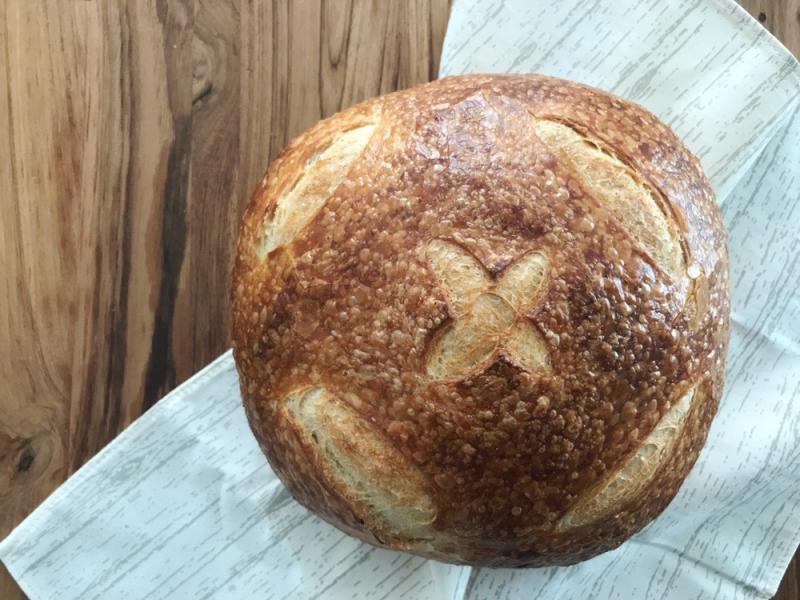
What’s all the brouhaha about? Fermentation is all the rage because it seems to be great for our bodies and fermented foods taste delicious! Health and flavor together? Can’t beat that! Probiotics, created during fermentation, are purported to improve our gut health, possibly leading to better digestion, stronger immune systems, and a healthier weight. Fermentation may take care of our microbiome, which, when healthy, seems to have a remarkably positive influence on the rest of our body.
As is often the case, the newest fads frequently have long histories. Fermentation is an ancient food preservation technique that humans have been using intentionally for literally thousands of years. It extends the life of food and can make it taste better. It’s a natural process through which microorganisms like yeast and bacteria convert carbohydrates—like starch and sugar—into alcohol or acids that give food a distinctive flavor, ranging from tart to savory. The fermentation process promotes the growth of good bacteria, known as probiotics, and their by-products, such as organic acids, keep the bad microorganisms out, which can otherwise make us sick. Fermentation can occur naturally, no human hands needed, and we can harness it ourselves in an attempt to control the outcome, giving us the level of sour or the spectrum of flavors and textures we prefer.
As artisan bakers, we are very happy to tell you that many of the breads we bake are naturally fermented. These breads don’t use any commercial yeast—the sourdough starters are kept alive and fed daily in preparation for addition to the final mix. They start with the fewest ingredients, but thanks to the fermentation time (anywhere from 14 to 18 hours, depending on the type of bread) they have the most complex flavors.
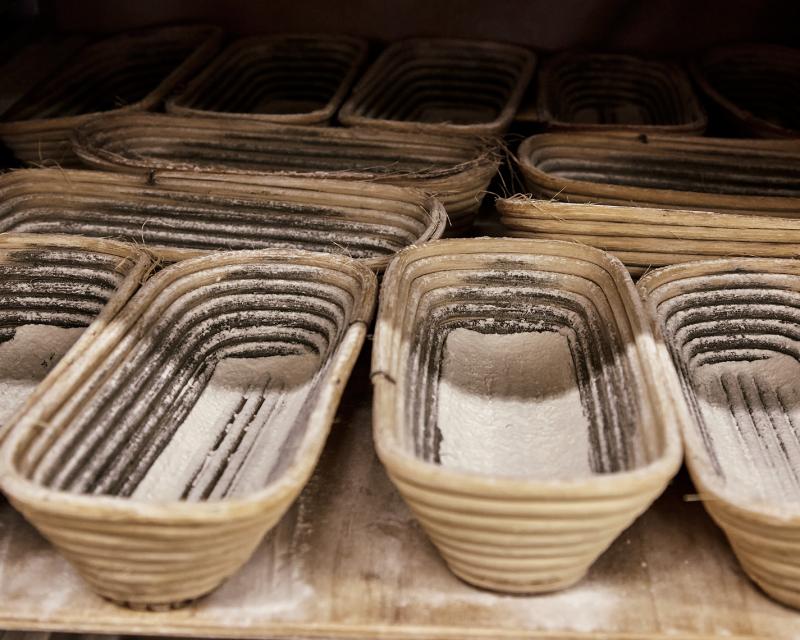
We’ve noticed lately that customers don’t know what to ask for when they want a bread with a long fermentation and sometimes people think the word sourdough must be in the name to be the “right” bread. So what do you ask for if you’d like a naturally fermented bread? At Zingerman’s Bakehouse, we use the terms “sourdough” and “naturally leavened” interchangeably for our naturally fermented breads. I personally prefer to say naturally leavened because sourdough implies that the bread will taste sour, and that is not always the case.
Fermented bread can come in the full range of sweet to very sour depending on how the fermentation process is handled and what kind of ingredients are used. For example, the Italian Christmas bread panettone is traditionally naturally leavened and it is definitely sweet and milky in flavor, not sour. Our Better than San Francisco Sourdough is the tangiest of all of our naturally leavened breads, and our newest bread, State St. Wheat, isn’t sour at all, but they are both fermented breads made with natural starters. Our Cinnamon Raisin and Chocolate Cherry are certainly sweet with a slight background note of tanginess and they are also both naturally leavened. Pecan Raisin is another naturally leavened bread with a not-so-pronounced tang, but just enough to add an unmatched savor to the delicious pecans and raisins. Whether sweet or tangy, or somewhere in between, we as bakers strive for fully fermented breads to give you the best experience in terms of flavors, textures, and aromas as well as nutrition and digestibility.
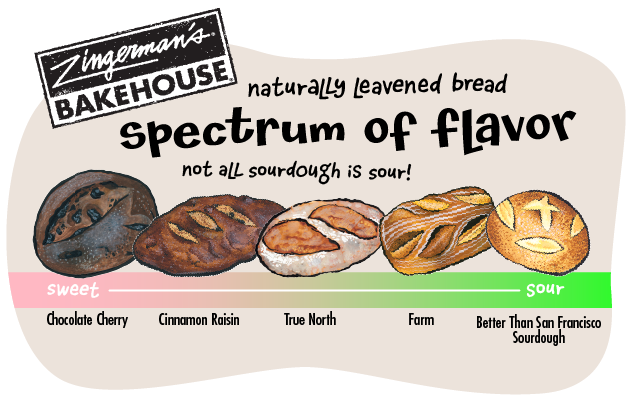
So if you’re looking for breads made from natural starters, with no commercial yeast, and long fermentation times, we bake almost 20 different choices—with lots of flavor and texture variations whether you want to call them sourdough or naturally leavened. Need a few names to start your personal research? Farm, True North, Pecan Raisin, Cinnamon Raisin, Country Miche, Walnut Sage, Chocolate Cherry, 8 Grain 3 Seed, Vollkornbrot and Freekeh Fougasse are all naturally leavened breads.
Come in and do a tasting to experience the breadth of flavors possible from fermentation in naturally leavened breads. Feel free to ask us for samples and find your personal favorites!
By Amy Emberling, Bakehouse managing partner
Second photo by Antonis Achilleos
She has been an avid food lover and baker since her childhood in Nova Scotia, Canada. After high school Amy moved to Cambridge, MA and received her bachelor’s degree from Harvard University. She then followed her passion for food and learned to cook and bake at L’ecole de Gastronomie Francaise at the Ritz Hotel in Paris, France as well as in Michigan restaurants. In 1999 she received her MBA from Columbia University.
Amy came to Zingerman’s Bakehouse when it opened in 1992 as one of the original bakers on the staff of eight. She soon became the first manager of the bread bakery, then the manager of the pastry kitchen and in 2000 she became a partner.
Amy has been working in the food world for over 20 years and is passionate about hands-on baking, teaching about baking and business, developing businesses and people. As well as teaching at BAKE! Amy presents for ZingTrain on our business practices. A few of the Bakehouse items she is personally responsible for developing are the Old School Apple Pie, Buenos Aires Brownies, and our Gingerbread Coffeecake. In addition to developing items, Amy is a promoter of classic bakery favorites from many cultures and has brought traditional standards to the Bakehouse such as Paris Brest, Hummingbird Cake, and Maple Cream Cookies.

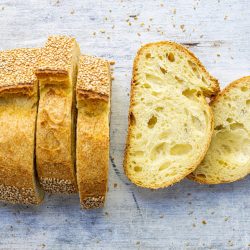
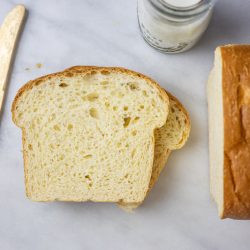
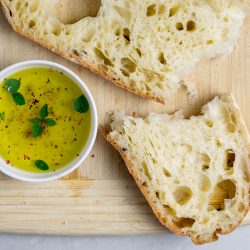
It’s awesome that you talked about how artisan bread is naturally fermented. Recently, my wife and I started to learn more about baked goods. We love them, and we’d like to try different types, so we’ll be sure to read your piece carefully. Thanks for the information on handcrafted bread.
My pleasure. Be in touch if you have questions.
I haven’t tried fermenting bread yet. I have only just started and fermented some cucumbers and made pickles. Bread is on my “to-do” list.